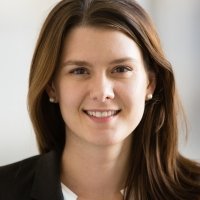Developing Low Carbon Economies in Latin America
Event documents are available for download below.
This November, leaders from around the world and climate change specialists will meet in Germany to negotiate specific actions and frameworks to limit greenhouse gas emissions under the 2015 Paris Agreement. In its Fifth Assessment Report, the Intergovernmental Panel on Climate Change (IPCC) determined that there is a need to reach global carbon neutrality ("net decarbonization") between 2055 and 2070 in order to keep the global temperature from warming more than 2 degrees.
Latin America has emerged at the forefront of global efforts to move toward a fossil fuel-free future, supported by a large endowment of renewable resources and an increasingly favorable policy environment. A 2016 UNEP-DTU Report Zero Carbon Latin America found that Latin America and the Caribbean are capable of achieving net decarbonization by the middle of this century through targeted, dedicated policies.
Join us on November 1st for a conversation with Walter Vergara, the author of the 2016 report and an expert on climate change mitigation efforts in Latin America. Vergara will present actions that could be taken to achieve net decarbonization—including in energy, transportation, land use, and industry— assess projects already being implemented across the region, and discuss the combinations of policy, technology innovation, and economic conditions that will impact this process.
This conversation is part of the ongoing “Managing Our Planet” series, jointly developed by George Mason University and the Wilson Center’s Brazil Institute and Environmental Change and Security Program. The series, now in its sixth year, is premised on the fact that humanity’s impacts are planetary in scale and require planetary-scale solutions. This event is also co-sponsored by the World Resources Institute and the Wilson Center's Latin American Program and Mexico Institute.
Introduction

Keynote Speaker
Moderator

Senior Director, Albright Stonebridge Group
Hosted By

Brazil Institute
The Brazil Institute—the only country-specific policy institution focused on Brazil in Washington—aims to deepen understanding of Brazil’s complex landscape and strengthen relations between Brazilian and US institutions across all sectors. Read more


Environmental Change and Security Program
The Environmental Change and Security Program (ECSP) explores the connections between environmental change, health, and population dynamics and their links to conflict, human insecurity, and foreign policy. Read more


Mexico Institute
The Mexico Institute seeks to improve understanding, communication, and cooperation between Mexico and the United States by promoting original research, encouraging public discussion, and proposing policy options for enhancing the bilateral relationship. A binational Advisory Board, chaired by Luis Téllez and Earl Anthony Wayne, oversees the work of the Mexico Institute. Read more


Latin America Program
The Wilson Center’s prestigious Latin America Program provides non-partisan expertise to a broad community of decision makers in the United States and Latin America on critical policy issues facing the Hemisphere. The Program provides insightful and actionable research for policymakers, private sector leaders, journalists, and public intellectuals in the United States and Latin America. To bridge the gap between scholarship and policy action, it fosters new inquiry, sponsors high-level public and private meetings among multiple stakeholders, and explores policy options to improve outcomes for citizens throughout the Americas. Drawing on the Wilson Center’s strength as the nation’s key non-partisan policy forum, the Program serves as a trusted source of analysis and a vital point of contact between the worlds of scholarship and action. Read more
